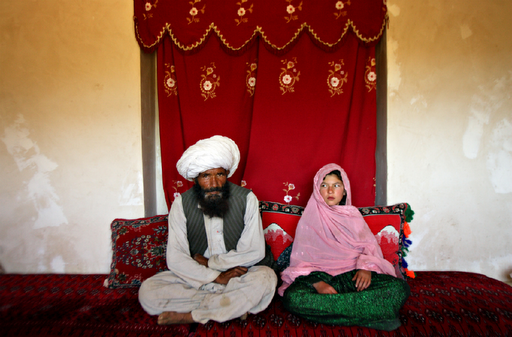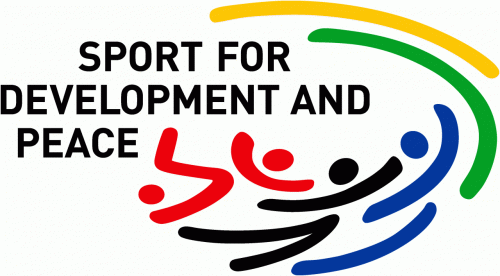
Forced child marriage has been illegal in some form in Pakistan since 1929, when the Child Marriage Restraint Act set the minimum age of marriage to 16 and imposed weak penalties, such as one month’s imprisonment, for offenders. In Pakistan, as well as a number of other countries struggling with intense poverty, girls living in the poorest and least educated areas are often seen as either a source of “bride price” to pay their family’s debt, or as a financial burden to be passed on to another family as early as possible. Children forced to marry adults aren’t in a position to understand what they are being committed to or to take on the responsibilities of adulthood. Young married girls often give birth before they are physically ready, and many die from the medical complications that follow early intercourse and childbirth. Being forced into marriage early also cuts short a child’s education, preventing her from being able to develop to her full potential or join the workforce.
Two months ago, the government of Pakistan passed a new piece of legislation aiming to address the issue of forced child marriage in one province of the country. The new law raises the minimum legal age for marriage to 18, and imposes penalties on male adults found to have married a child as well as anyone found to have conducted or assisted in arranging the marriage, including the child’s parents. This urgently needed reform was met with protest from Pakistan’s Council of Islamic Ideology (CII), which announced that banning child marriage goes against Islamic traditions and that any girl who appears to have reached puberty is prepared to become a bride. Fortunately, the CII has no power to make or enforce laws, and the new law, which was passed unanimously in Sindh province, is an important first step in marital law reform for the whole country.
Couples getting married will now also have to possess a Computerized National Identity Card (CNIC) in order to have their marriage registered. The CNIC would provide information on the ages of those getting married, ostensibly making it impossible for those conducting a child marriage to feign ignorance when questioned about their involvement. Unfortunately, parents living in remote areas often fail to register their children for a national ID card, which makes it difficult to ascertain the ages of those getting married. Children lacking an ID card are legally  non-existent and therefore can’t get access to government services. Using the new law to prevent child marriages may only work in Pakistan once the national ID registration system is integrated fully throughout the country. Nonetheless, the very fact that these changes were acknowledged as being necessary indicates that change in attitude, at least among lawmakers, is shifting in favour of children’s rights.
non-existent and therefore can’t get access to government services. Using the new law to prevent child marriages may only work in Pakistan once the national ID registration system is integrated fully throughout the country. Nonetheless, the very fact that these changes were acknowledged as being necessary indicates that change in attitude, at least among lawmakers, is shifting in favour of children’s rights.
Pakistan is not alone in having taken steps to eliminate child marriage. On May 29, the African Union (AU) began a campaign against child marriage that will stretch across 10 countries in the region. The Campaign to End Child Marriage in Africa was organized by the African Union in partnership with UNICEF and the United Nations Population Fund (UNFPA), and aims to both raise awareness of the harmfulness of child marriage and support the development and enforcement of policies protecting the rights of children. The campaign will include a number of media initiatives as well as efforts to improve data collection for law enforcement agencies on the nature and frequency of child marriages. At the campaign launch in Addis Ababa, UNFPA Regional Director Julitta Onabanjo affirmed that the cost of intervening to prevent child marriage pales in comparison to the human potential wasted every year through inaction.
What is notable about the AU initiative is that it is, in the words of Deputy Executive Director of UNICEF Martin Mogwanja, “an Africa-wide movement of leaders and organizations collectively saying no to child marriage.” By raising awareness of the harmful impact of child marriage across the 10 target countries, it may be possible to strengthen public support for the movement, which has gained popularity across the continent as nations address obstacles to development. According to research from the non-governmental organization Girls not Brides, Africa contains 15 of the 20 countries where child marriage is most prevalent, supported by cultural traditions, lack of education, and poverty. Since child brides tend to come from remote, marginalized communities, grassroots efforts to improve education about the issue need to be paired with strong, far-reaching public institutions to ensure that families in these communities are given access to meaningful alternatives to early marriage.
As campaigns and reforms like these continue to gain ground in the highest-risk regions of the world, the stage will be set for bold and sincere action against child marriage. While it is admirable that lawmakers and governments are enacting legal reforms and hosting dialogues, these actions are merely the first steps down a long road towards securing the rights of children and human rights more broadly. In order for progress to be made in this direction, words need to be supported by long-term commitments, and promises must be fulfilled. Access to education, good public services, and civil society action protecting women’s rights are needed to turn new laws into a new reality for children living at risk of being forcibly married.




